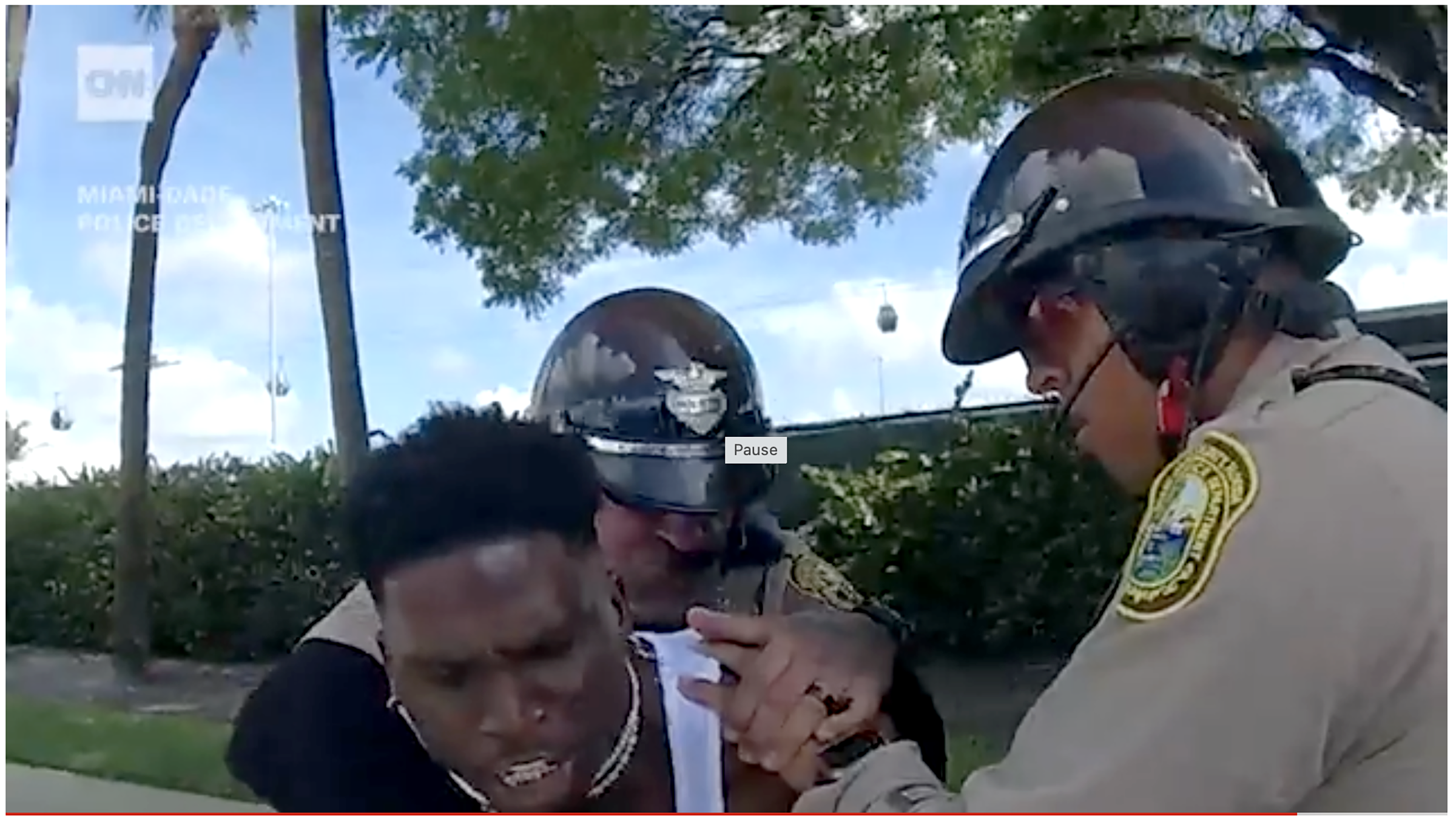Police Tactics and Black Drivers: The Case of Tyreek Hill and Officer Danny Torres
Francis Page Jr. | 9/15/2024, 6:37 p.m.
In the ever-changing landscape of race relations in America, the subject of law enforcement and its interactions with Black citizens remains a point of contention. Recent events involving Miami Dolphins star Tyreek Hill and Miami-Dade Police Officer Danny Torres have reignited the conversation about how Black drivers experience traffic stops. This issue resonates far beyond Florida's borders, touching the lives of many Black individuals in communities across the nation, including Houston, Texas.
The Traffic Stop That Started It All
Tyreek Hill, one of the NFL’s most dynamic players, faced an unsettling situation just moments before he was set to play a high-stakes game. A routine traffic stop escalated into a forceful confrontation that left Hill handcuffed on the ground, sparking a fresh wave of debates about the disproportionate treatment of Black men during police encounters.
Caught on a body camera and a now-viral cellphone video, the interaction shows Officer Danny Torres pulling Hill from his vehicle and forcing him to the ground outside Miami's Hard Rock Stadium. Hill's crime? Driving without a seatbelt and speeding. But for many, this incident highlighted the bigger issue: "driving while Black" — an unfortunate reality for many Black drivers who often face more aggressive responses from law enforcement.
 Tyreek Hill's traffic stop
Tyreek Hill's traffic stop
Officer Danny Torres: A Controversial Career
Officer Danny Torres, the Miami-Dade police officer at the heart of this controversy, has seen his fair share of internal investigations. With 27 years of service under his belt, Torres has been suspended six times for various infractions, raising questions about his fitness for duty. Following the altercation with Hill, Torres was placed on administrative leave pending an internal investigation.
While Torres’ career may be long, it has not been without controversy. Many in the community have begun to ask: If Hill wasn’t a celebrity, would this incident have ended differently? Hill himself speculated, stating, “If I wasn’t Tyreek Hill, worst-case scenario, we would have had a different article — ‘Tyreek Hill got shot in front of Hard Rock Stadium.’”
Black Drivers: The Unspoken Rules of Survival
For generations, Black families have had to teach their children "the talk" — a set of survival instructions for when they encounter law enforcement. Keep your hands visible. Do as you're told. Speak respectfully. These are lessons that white parents may not need to stress to their children, yet they are vital for Black youth navigating a world where one wrong move could escalate an interaction into a life-or-death situation.
Hill's case underscores these stark realities. Even though he followed much of this advice, the situation spiraled. As many Black drivers know all too well, compliance doesn't always prevent violence or excessive force.
A Systemic Problem
Hill’s teammate, linebacker David Long Jr., wasn’t surprised by what happened, saying, "It's something I’m used to seeing." Similarly, Dolphin’s safety Jevon Holland pointed out that police brutality, particularly against Black men, is “not unnatural” in America. These players’ remarks echo the experiences of countless Black Americans who feel that their rights are secondary to their survival in encounters with law enforcement.
Community Reactions and Public Outcry
The Dolphins organization, along with Hill’s agent Drew Rosenhaus, has condemned the Miami-Dade Police Department’s actions, calling for accountability and immediate disciplinary action. The NFL team released a statement criticizing the "overly aggressive" behavior of the officers involved, while Rosenhaus called for their dismissal, arguing that their actions were "devastating" and "heartbreaking."
On the other side, the Miami-Dade Police Department has launched an investigation into Officer Torres' actions, with Police Director Stephanie Daniels stating that the body camera footage was released earlier than usual "to maintain public trust." But trust is exactly what has been eroded in many Black communities, both in Miami and beyond.
Moving Forward: A Call for Change
Tyreek Hill’s experience is far from isolated. The data backs it up. A 2022 report from the Bureau of Justice Statistics found that Black people are more likely to experience the threat or use of force during traffic stops compared to their white counterparts. Despite efforts at police reform, systemic issues remain deeply embedded in law enforcement across the nation.
Hill’s ordeal should serve as a reminder to all Americans that the conversation on police brutality and racial profiling is far from over. While Hill managed to leave the incident physically unharmed, many others have not been so lucky. The time for meaningful change is now, not just in Miami but across the country — including Houston, where similar stories are all too familiar.
Conclusion: A Lesson for Us All
Houston Style Magazine readers, Tyreek Hill's traffic stop shines a spotlight on the uncomfortable truth that Black drivers still face disproportionate treatment in routine encounters with law enforcement. Officer Danny Torres’ long history of suspensions raises questions about accountability within police departments, and his actions have now brought national attention to the ongoing struggles of Black citizens in America. Houston and other major cities must reflect on these events and push for reforms that prioritize human rights, community trust, and true justice.




